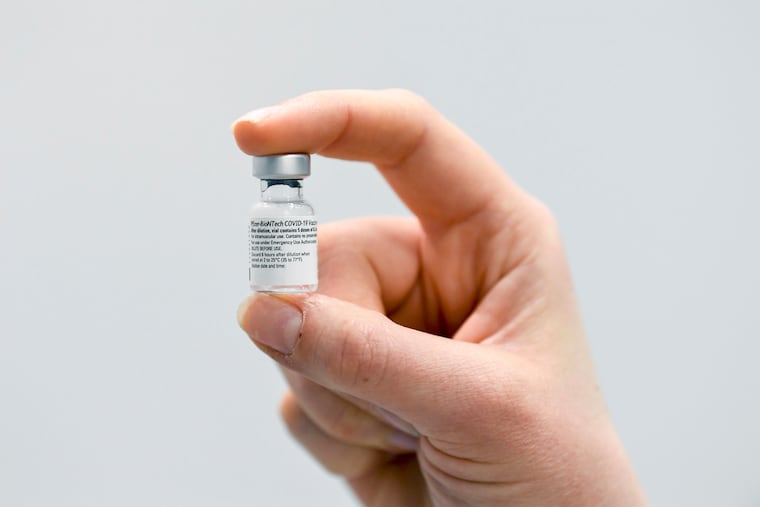Allergic reactions to COVID-19 vaccines are ‘exceedingly rare,’ CDC says
People with allergic reactions generally recovered after treatment with an EpiPen or similar device.

Of the 1.9 million people who received a first COVID-19 vaccine dose in mid-December, 21 experienced a severe but treatable allergic reaction, federal health officials said Wednesday, calling the rate of such events “exceedingly rare.”
Twenty of the 21 people are known to have recovered, in most cases after injections with an EpiPen or similar device containing epinephrine — a hormone that increases blood flow, according to a report from the U.S. Centers for Disease Control and Prevention. Details on the 21st person were not available.
The rate of these allergic reactions, called anaphylaxis, was higher than what is seen after the flu vaccine yet still very rare, said Nancy Messonnier, director of the agency’s National Center for Immunization and Respiratory Diseases.
“These are safe and effective vaccines,” she said at a news conference. “We have good data to show that.”
» READ MORE: Even people with allergies should get the vaccine, experts say
The rate of these reactions is roughly 1 out of 100,000 people. Estimates vary, but that is as much as 10 times the rate of such reactions in those who receive flu vaccines, she said. Anaphylaxis is characterized by a sudden drop in blood flow, which leads to difficulty breathing and the need for emergency care.
But given that these reactions are easily treated, and that the alternative — a case of COVID — can have lasting, even fatal consequences, the vaccines are worth the very slight risk, she said.
“It’s still exceedingly rare,” she said.
Clinicians who administer the vaccines are advised to follow these precautions:
Ask recipients in advance if they have known allergies..
Have EpiPens or similar devices on hand to treat any such reactions.
Urge recipients to remain at the administration site for 15 minutes after getting the injection just in case of a reaction, or 30 minutes if they have a history of allergies.
The data on allergic reactions were limited to those who got the vaccine made by Pfizer and BioNTech between Dec. 14 to Dec 23. The similar Moderna vaccine was not available until Dec. 21, so data on any reactions from that drug will be released later, Messonnier said.
As for other adverse reactions after vaccination, Messonnier said there is no evidence that the injections lead to severe, lasting consequences. Some recipients experience a bad headache or fever.
“We are not seeing any worrisome signals,” she said.